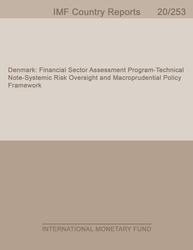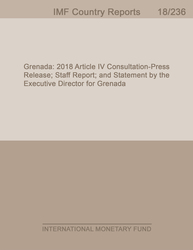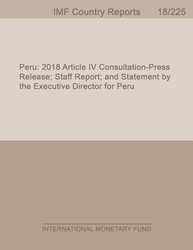
Denmark:Financial Sector Assessment Program-Technical Note-Systemic Risk Oversight and Macroprudential Policy Framework
Financial Sector Assessment Program-Technical Note-Systemic Risk Oversight and Macroprudential Policy Framework
READ MORE...
Volume/Issue:
Volume 2020
Issue 253
Publication date: August 2020
ISBN: 9781513553030
$18.00
Add to Cart by clicking price of the language and format you'd like to purchase
Available Languages and Formats
| English |
Prices in red indicate formats that are not yet available but are forthcoming.
Topics covered in this book
This title contains information about the following subjects.
Click on a subject if you would like to see other titles with the same subjects.
Finance , Economics- Macroeconomics , ISCR , CR , SRC secretariat , housing market , SRC chair , SRC meeting , SRC member , member institution , SRC ability , coordination role , risk weight , central bank , debt service , capital requirement , Systemic risk , Macroprudential policy , Housing prices , Systemic risk assessment , Mortgages , Europe , Baltics , Global
Also of interest
Summary
COVID-19 pandemic: The Financial Sector Assessment Program (FSAP) work was conducted prior to the COVID-19 pandemic, so this Technical Note (TN) does not assess the impact of the crisis or the recent crisis-related policy measures. Nonetheless, given the FSAP’s focus on vulnerabilities and policy frameworks, the findings and recommendations of the TN remain pertinent. While Denmark’s institutional arrangements are uncommon, the authorities have undertaken several macroprudential measures since the last FSAP. The Minister for Industry, Business and Financial Affairs (MIBFA) has decision-making power over most macroprudential tools in Denmark, which is rare in international practice. However, the Systemic Risk Council (SRC), which includes members from the Danmarks Nationalbank (DN) and Danish Financial Supervisory Authority (DFSA) plays an advisory role and has powers to give recommendations with a comply or explain mechanism. In recent years, the authorities have taken wide-ranging macroprudential policy actions in response to growing systemic vulnerabilities, which have seemed to slow down some of the riskier trends. More recently, in response to the Covid-19 crisis, countercyclical capital buffer (CCyB) has been fully released.
Copyright © 2010 - 2026
Powered by:
AIDC



